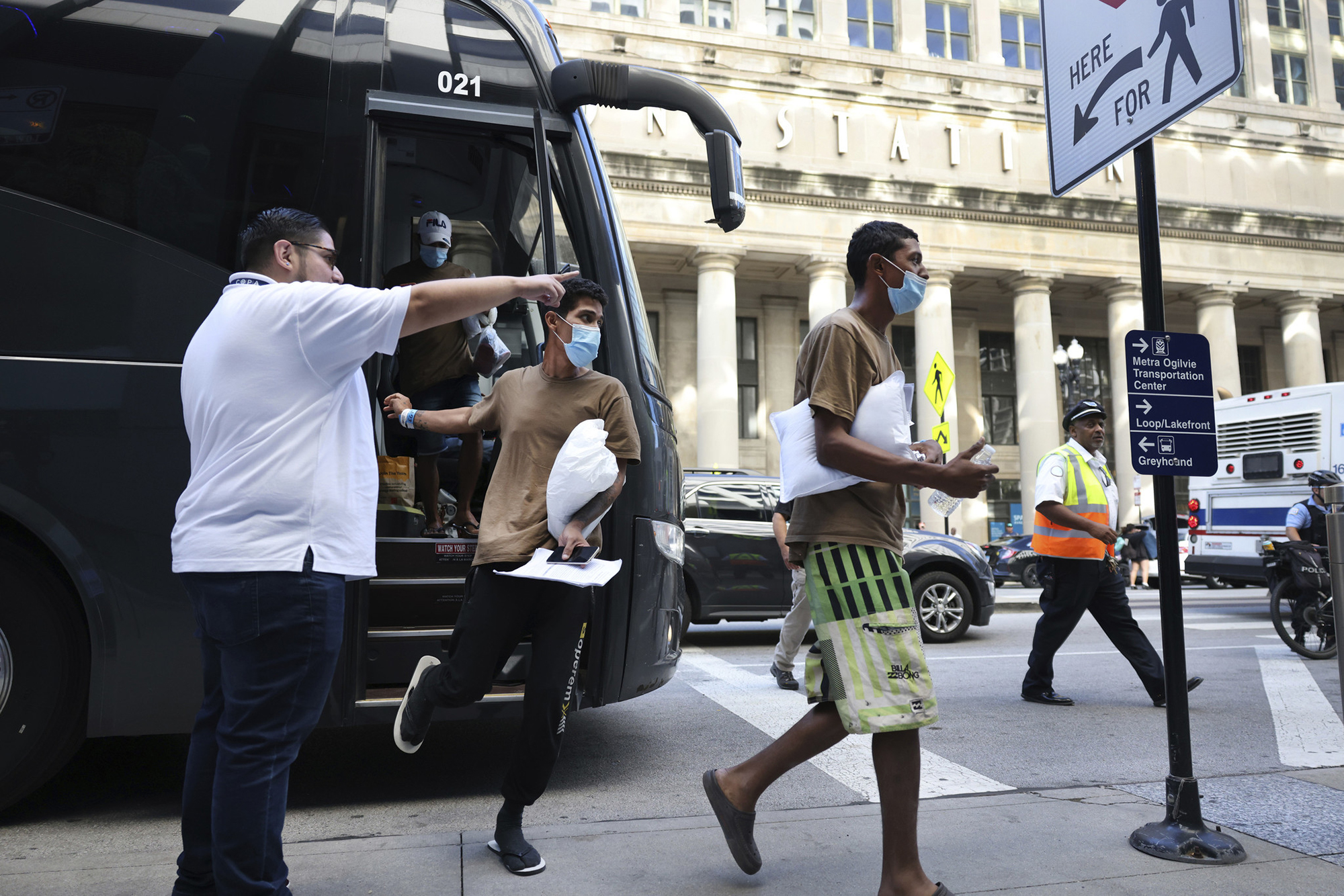Mayor Brandon Johnson has decided not to travel to the southern border this week, his office announced Monday, opting instead to stay in Chicago "to address the immediate urgency of adding shelter space to house thousands of new arrivals currently sleeping in police stations, airports or outside."
Since buses of asylum seekers began arriving in Chicago more than a year ago, the city as of this week has received more than 18,500 migrants, according to Chicago's Office of Emergency Management and Communications.
According to city officials, 11,266 migrants are currently in city shelters as of Sunday. Of the 3,702 awaiting placement at a shelter, 3,208 are living at Chicago Police Department districts, 491 at O’Hare International Airport and three at Midway International Airport.
As more migrants continue to arrive and with overnight temperatures in the 40s and below, housing is top of mind for Chicago leadership.
"With the weather growing colder and hundreds of migrants arriving each day, it is more important than ever that every stakeholder at the state, federal and local level work diligently to address this challenge, while continuing to meet the needs of Chicago and Illinois residents," Johnson's office said in a statement announcing the mayor's decision to stay in Chicago this week.
Johnson previously announced he would travel to the southern border, but on Monday, his office said Beatriz Ponce de Leon, deputy mayor of immigrant, migrant and refugee rights, will lead a small delegation there beginning Tuesday instead.
The delegation aims to travel to El Paso, San Antonio, McAllen and Brownsville in Texas, noted by Johnson's administration to be "the primary points of departure for migrants traveling to Chicago by both bus and air."
"The purpose of this trip is to review operations at federal processing centers, and municipal and NGO-led transit sites, and begin discussions with local stakeholders about ways to alleviate the financial and operations challenges in both Chicago and at the border," Johnson's team said in a statement.
The delegation wants to foster "better lines of communication" and collect data to "expedite work authorization processing and the transition to self-sufficiency."
Feeling out of the loop? We'll catch you up on the Chicago news you need to know. Sign up for the weekly Chicago Catch-Up newsletter.
"The Chicago delegation will also be sharing pertinent information about extreme housing and weather conditions currently facing asylum seekers in Chicago, and the immense challenges awaiting those without verified sponsors," Johnson's administration said.
Earlier this month, the mayor's office said the city has opened new shelters every six days to keep up with the increasing demand.



